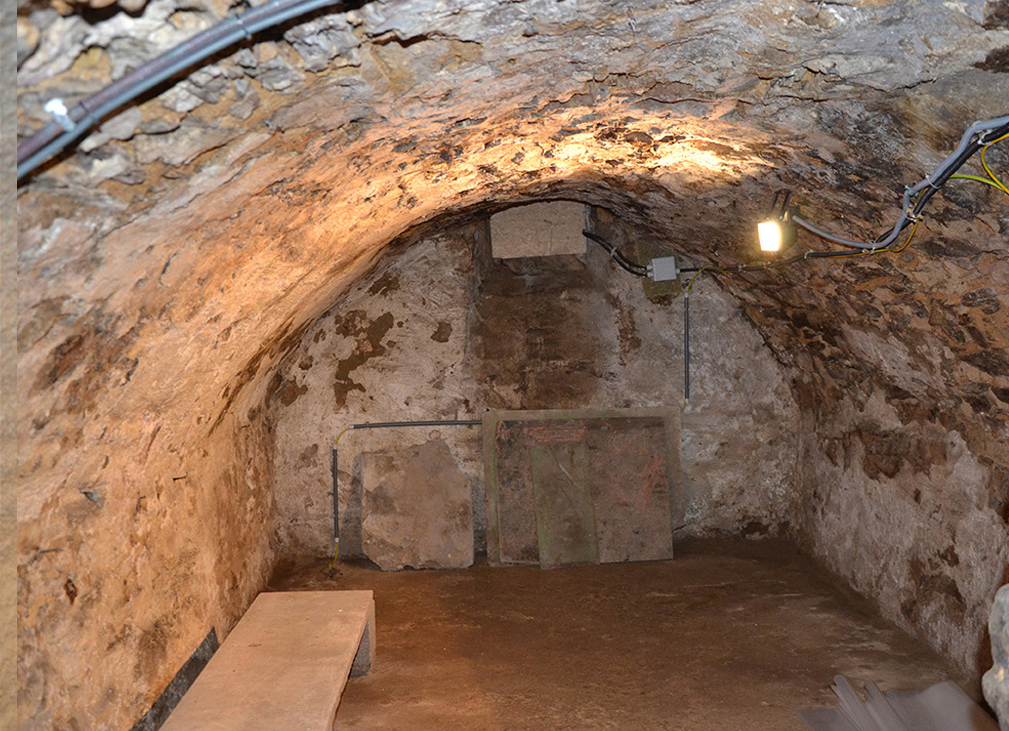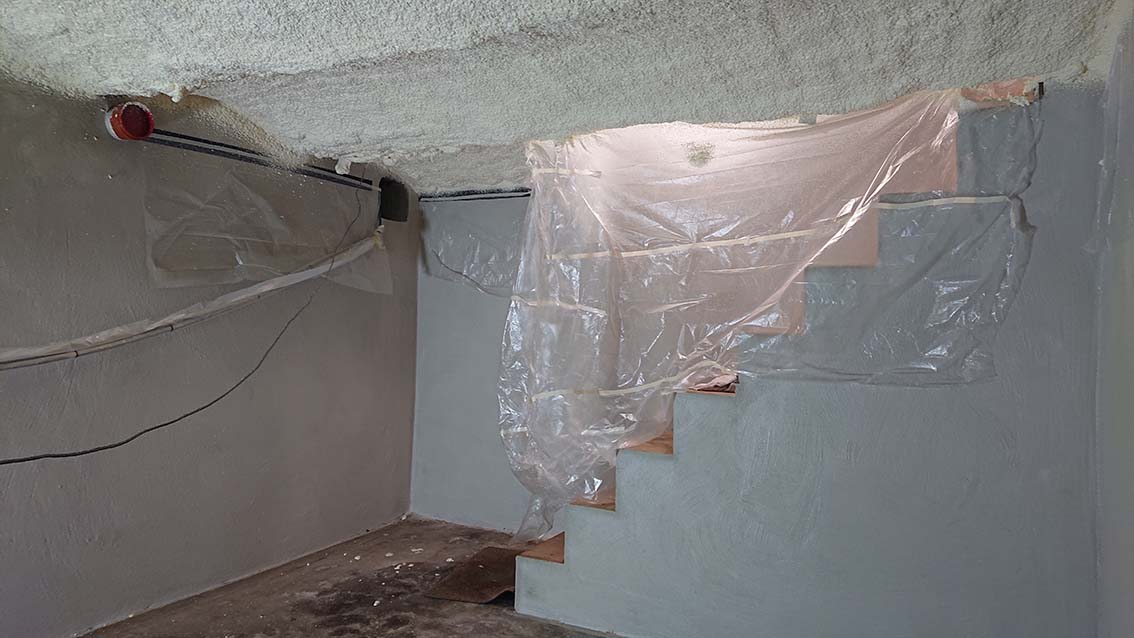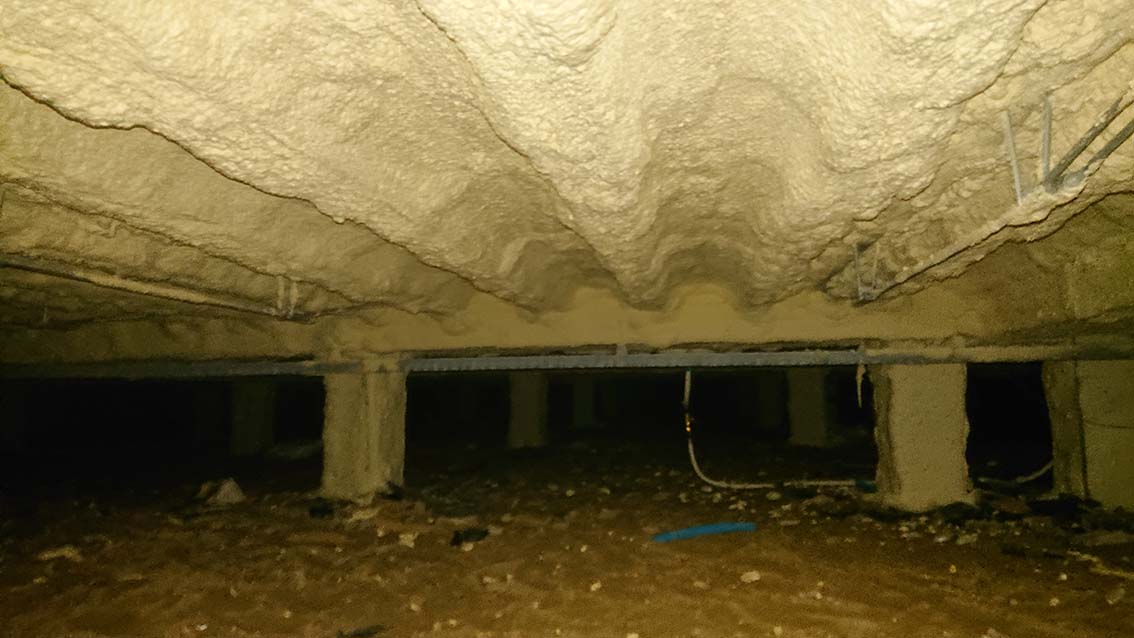BASEMENT INSULATION
Energy efficiency at its best
Basement insulation is an important step in creating a comfortable and energy-efficient home. By using sprayed insulation foam in this process, you can seamlessly and airtightly seal off the basement space from the occupied area above it. The cool nature of the cellar can thus be maintained, but the cold and/or heat can no longer be exchanged with the living area above it.
A basement is often a damp room. The insulation foam provides a moisture barrier that helps prevent water infiltration. Due to the high humidity in basements, insulation foam can prevent mould, rot and other water-related problems from occurring. Before applying the insulation, the walls must be dry to ensure good adhesion.
Another advantage of insulation foam is its durability. Properly applied, it can last for decades without any reduction i n quality, unlike other insulation materials that can collapse over time, absorb moisture, degrade,…. The longevity of sprayed PUR ensures that you can enjoy its benefits for years to come, making it a cost-effective choice in the l ong run.


Before

After
Insulation calculator
For professional use only.
How much foam do I need?
Fill in the fields to figure out how much insulation foam you need.
Results
Foam needed: 0 m³
Suggested sets: 0 sets
1.
ROOF ONLY
Insulating the ceiling will, on the one hand, ensure that the cold in the basement cannot rise into the occupied, and heated, part of the house. Also, in the heated part of the house, it will ensure a pleasantly warm floor that is not cooled by the basement below. Insulating the basement ceiling is very energy efficient in the long run. Installing the insulation once will provide years of pressure on heating costs.


2.
ROOF AND WALLS
When the aim is to achieve as constant a temperature as possible, it is advisable to insulate both the ceiling and walls. This will ensure a v ery constant temperature throughout the year. Similarly, if the basement area is very humid, it may be opted to foam coat both walls and ceiling.
3.
CRAWLSPACE
Insulating the ceiling of the crawl space will, on the one hand, ensure that the cold in the basement cannot rise into the occupied, and heated, part of the house. Also, in the heated part of the house, it will ensure a pleasantly warm floor that is not cooled by the underlying crawl space. Insulating the ceiling of the crawl basement is very energy efficient in the long run. Installing the insulation once will reduce heating costs for years.






